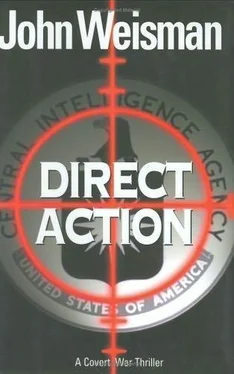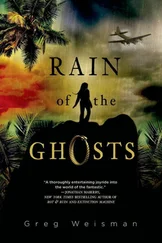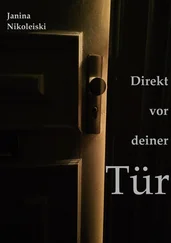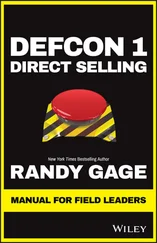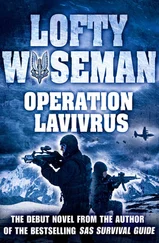The Shin Bet man’s head bobbed up and down. “On the money.”
“What I’m saying is that if that’s how you see things, then all of your analysis-all the evidence-tends to support that predetermined conclusion-this is all about megaterror directed at Israel.”
Aricha frowned at Reuven. “Again he thinks our evidence is wrong.”
“No.” Tom began again. “Your evidence is accurate. But I think by focusing on the literal substance of the problem-the evidence, the arguments pro and con, the conclusions-we’re missing the point. We all missed the point. That’s what I mean by wheelbarrows, Amos. The security guard reached a logical conclusion: since it was a diamond mine, the guy had to be stealing diamonds. That was a logical assumption, right?”
“From a diamond mine you don’t steal rubies. Yes-logical.”
“But incorrect. Bad analysis. If the guard had approached the problem with an open mind-if he hadn’t boxed himself in by not considering any other conclusion than ‘diamonds are being stolen,’ he might have included the possibility that something else was being taken. Like wheelbarrows.”
Tom watched as Aricha stroked his chin. Warily, the Israeli said, “Go on.”
“We’ve been focusing on explosives for use in attacks against Israel. I think these people solved the explosives problem a long time ago. I think Ben Said has a formula that worked-until now. Why now? Because now we can all start devising countermeasures.” He paused, gratified to see Amos nodding in agreement. “I think what Ben Said’s been working on since August…is detonators .” Tom took another swallow of coffee. “Jerusalem-the German Arab. He blew himself up arming the detonator, right?”
“Yes.”
“And Malik. What was he doing? He was attaching the detonator to the bomb, or arming it, or something. Because the idea was for him to go to the restroom and detonate the device remotely. He was going to be a lucky survivor. Dianne was going to take the fall.”
Aricha cut one of the figs in half, speared a piece, and put it in his mouth. “So how did the device go off prematurely, kiddo?”
“It could have been a faulty detonator,” Tom said. “It also could have been the embassy-set off by one of the variable-frequency oscillators mounted on the embassy building.”
“Mike’s is two hundred and five meters from the northwest corner of the embassy,” Reuven said. “I paced it off yesterday.”
Aricha frowned. “Wouldn’t they know that? These people do target assessments, Reuven.”
“It’s common knowledge the ambassador has forbidden VFOs on embassy vehicles, Amos,” Tom continued. “The embassy’s devices have been camouflaged to look like TV satellite dishes. No different than hundreds of others.”
“Go on.”
“But I decided the explosion wasn’t set off by the embassy devices. It was Malik’s carelessness. Or, the detonator was faulty. Possibly the remote-maybe there’s something awry in the circuitry. I don’t know-I’m not an explosives expert. Which brought me to the third incident: Gaza. It was an anomaly.”
Aricha frowned. “Anomaly?”
“There was something about Gaza that didn’t fit. I can accept that our man was killed because of the information about Imad Mugniyah. I think that’s pretty clear. But it doesn’t explain Ben Said’s presence.”
Amos cocked his head in Tom’s direction. “A meeting with Arafat perhaps.”
“Unlikely. Ben Said likes his anonymity. His pattern all along has been to work through middlemen. No: I believe he was here because he was fine-tuning his detonators. Two of them had failed. He came here so he could make adjustments-do the last-minute work before he puts his latest generation of IEDs into play-against the West, not against Israel.”
Now it was Reuven who shook his head. “He came to Israel to perfect detonators? Tom, that’s preposterous.”
“No, it’s not.” Tom was insistent. “Shahram Shahristani said as much to me last week and it totally went out of my head until now. Shahram claimed Ben Said was using Israel as his weapons lab-his test kitchen. I thought he’d gone off the deep end. But he was on the money. Spot on.”
Amos Aricha looked skeptically at Tom. “Used Israel to perfect his explosive devices.”
“And his detonators.”
“Whatever. So, what’s the reason this man, who knows that if we laid hands on him he’d never get out of prison, and who knows that we have, shall I say, an extremely effective internal security apparatus-and yet still he chooses to bless us with his presence? Why is that, kiddo, since you seem to be so knowledgeable in this area?”
Tom paid no attention to Aricha’s sarcasm. “Ben Said was testing his weapons here in Israel because he could.”
Aricha scowled at Reuven Ayalon. “The kid’s crazy,” he said in Hebrew. Then he looked at Tom. “Listen, kiddo-”
“Amos,” Tom interrupted, “let me posit that Ben Said is working on detonators, not explosives. Okay, so he wants to make tests-not in a lab, but under real-life conditions. Two detonators have exploded prematurely. So he wants to do some reverse engineering. See which of the steps caused the problems. He needs volunteers to assemble bombs. He won’t tell them that it could be dangerous work, that they could get killed. He doesn’t say, ‘If the detonators don’t blow up in your face, then you get to use the bombs.’ He gives them instructions and turns them loose. If the detonators fail, too bad-one or two people are killed and it’s back to the drawing board.”
As Tom caught his breath he saw Amos Aricha give Reuven a “this guy is nuts” look. Undeterred, Tom pressed on. “Okay-what better place than Israel, or the West Bank, or Gaza, where there are hundreds of willing guinea pigs to build bombs to use against Israeli targets. Plus this: if he did his real-life testing in Paris, or London, or Madrid, or Washington, or anywhere else,” Tom said, “it would make waves.”
Aricha interrupted him. “What about Iraq or Afghanistan?”
“I thought about that,” Tom said. “In Iraq and Afghanistan, the situation is too uncontrolled, too chaotic. In Israel, you have a unique societal situation. The country is basically stable, but there’s also an environment in which terror organizations exist-Hamas, the Al Aqsa Martyrs Brigades, Fatah. Plus, there’s the media factor. If Ben Said tried this in Europe there’d be headlines. Governments would ratchet up the threat levels. An explosion in Israel-even if it kills someone-is a one-day story.” He looked at the Shin Bet man. “Sorry, Amos, but it’s true.”
“Living with terrorism is an everyday fact of life here.” The Israeli nodded in mournful agreement. “We even came up with a word for it- ha’matzav -the situation.”
“So-can you check to see whether there were any bombings between the last week of September and the October fifteenth explosion in Gaza?”
“I certainly don’t recall any.” Aricha extracted a cell phone from his shirt pocket, punched a number into it, machine-gunned ten seconds of rapid Hebrew. He tucked the cell phone between his shoulder and neck, cut himself some Morbier, sliced a thin piece of sausage, and set it atop the cheese. But before he could eat, he set it on the table, grabbed the phone, and listened intently for about half a minute, pausing only to grunt in monosyllables from time to time.
Finally, the Shin Bet man turned off the phone. He ate the cheese and sausage and washed it down with a swallow of coffee. “It was a quiet holiday season-we stopped about sixteen, seventeen individuals before they made it across the Green Line.”
“What were they carrying?”
“The usual,” Amos said. “Explosive vests filled with nails and bolts and nuts and screws dipped in rat poison.”
Читать дальше
